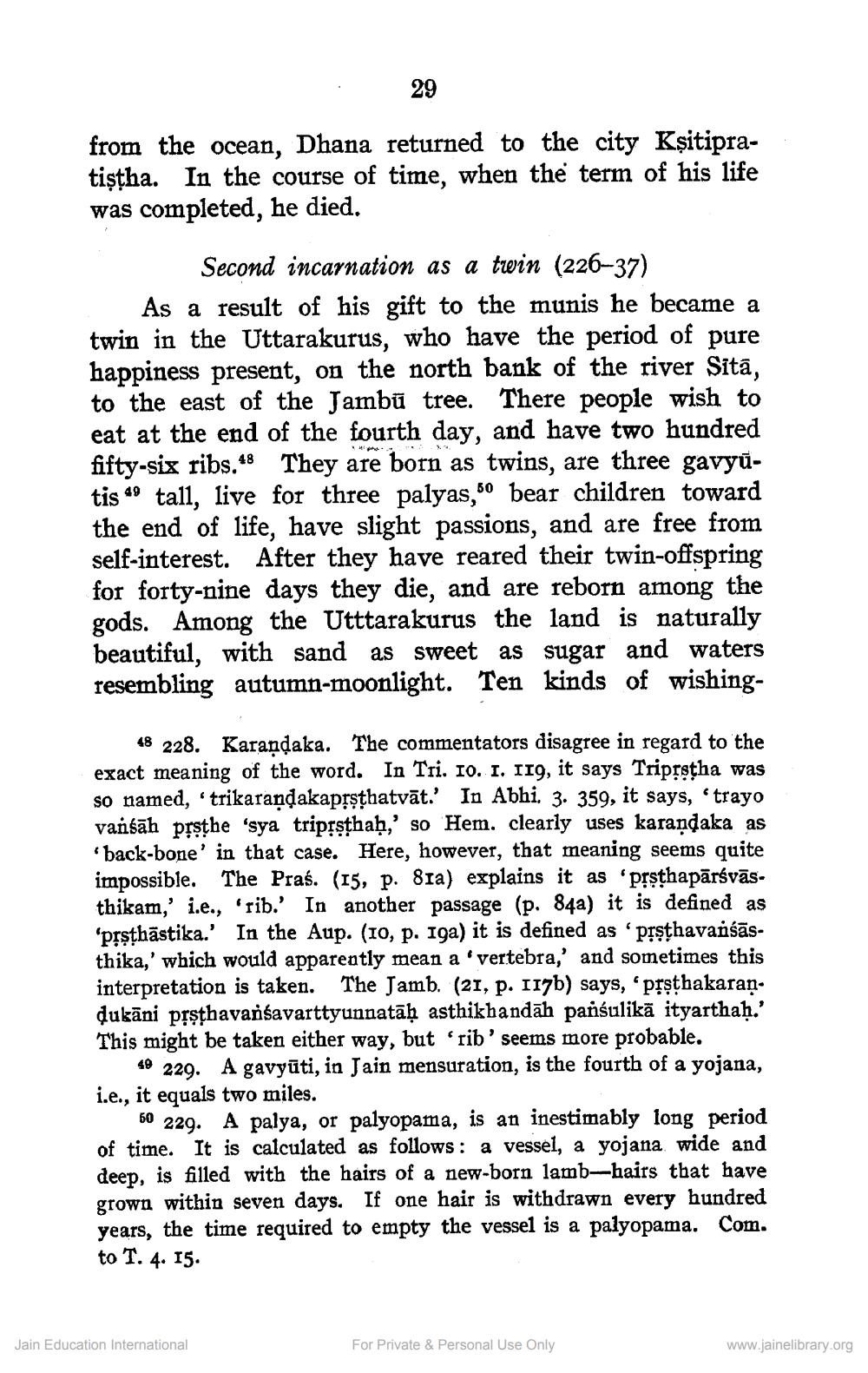________________
29
from the ocean, Dhana returned to the city Kṣitipratişṭha. In the course of time, when the term of his life was completed, he died.
Second incarnation as a twin (226–37)
As a result of his gift to the munis he became a twin in the Uttarakurus, who have the period of pure happiness present, on the north bank of the river Sitā, to the east of the Jambu tree. There people wish to eat at the end of the fourth day, and have two hundred fifty-six ribs.48 They are born as twins, are three gavyutis 49 tall, live for three palyas,50 bear children toward the end of life, have slight passions, and are free from self-interest. After they have reared their twin-offspring for forty-nine days they die, and are reborn among the gods. Among the Utttarakurus the land is naturally beautiful, with sand as sweet as sugar and waters resembling autumn-moonlight. Ten kinds of wishing
48 228. Karandaka. The commentators disagree in regard to the exact meaning of the word. In Tri. 10. 1. 119, it says Tripṛṣṭha was so named, 'trikaraṇḍakapṛṣṭhatvāt.' In Abhi. 3. 359, it says, 'trayo vansah pṛṣṭhe 'sya tripṛsthah,' so Hem. clearly uses karandaka as 'back-bone' in that case. Here, however, that meaning seems quite impossible. The Praś. (15, p. 81a) explains it as 'prsthapārśvāsthikam,' i.e., 'rib.' In another passage (p. 84a) it is defined as 'pṛṣṭhästika.' In the Aup. (10, p. 19a) it is defined as 'pṛṣṭhavanśāsthika,' which would apparently mean a 'vertebra,' and sometimes this interpretation is taken. The Jamb. (21, p. 117b) says, 'pṛṣṭhakaran. dukani pṛṣṭhavanśavarttyunnataḥ asthikhandah panśulika ityarthaḥ.' This might be taken either way, but rib' seems more probable.
49 229. A gavyūti, in Jain mensuration, is the fourth of a yojana, i.e., it equals two miles.
50 229. A palya, or palyopama, is an inestimably long period of time. It is calculated as follows: a vessel, a yojana wide and deep, is filled with the hairs of a new-born lamb-hairs that have grown within seven days. If one hair is withdrawn every hundred years, the time required to empty the vessel is a palyopama. Com. to T. 4. 15.
Jain Education International
For Private & Personal Use Only
www.jainelibrary.org




